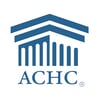Centers for Medicare & Medicaid Services (CMS) published a proposed rule on April 28, 2017, CMS-1677-P, which aims to provide consumers with more information to help them choose a healthcare provider. This proposed rule would require all Accrediting Organizations (AOs) with CMS deeming authority to post survey reports and acceptable plans of correction (POCs) on their websites. For more information on the proposed rule view the CMS fact sheet.
Although ACHC encourages transparency and supports efforts to empower consumers to make the best possible healthcare decisions, we do not believe that this proposed rule will achieve the desired outcome. Instead this proposal may provide more confusing and inconsistent data, impeding healthcare consumers’ ability to make informed decisions. ACHC stands firm with our providers in rejecting this proposal by submitting the following comments to CMS:
- Healthcare consumers should evaluate patient outcomes, not organizational deficiencies. Consumers should be educated on the value of Medicare Compare, an existing platform that allows them to look at outcomes of healthcare agencies. Transparency about an organization’s performance is best measured through the collection of data using a consistent methodology that incorporates risk adjustment and validation testing as accomplished through Medicare Compare.
- There is no requirement to standardize requirements between Accrediting Organizations. The publishing of Summary Reports does not provide an accurate comparison of requirements because non-CoP-based standards created by Accrediting Organizations are not equivalent. Healthcare consumers are left to draw improper conclusions caused by misinterpreting data and an inability to properly comprehend the implications of the findings.
- Focuses on deficiencies found at a fixed point during a three-year period versus Medicare Compare outcomes, which are designed to continuously display organizational outcomes. Survey results reflect deficiencies cited during a finite moment in a three-year accreditation period. This provides a snapshot in time. Conversely, outcomes such as those displayed on Medicare Compare reflect a continuous measurement of the healthcare providers’ quality of care and their commitment to maintaining compliance with the findings identified during the accreditation survey process.
- Works against concepts of continuous quality improvement. Organizations frequently maintain accreditation because they are committed to continuous improvement. Accreditation fosters the process of identifying gaps in compliance, creating an effective plan of correction, implementing the plan, and monitoring for ongoing compliance. If the proposed regulation is passed, agencies will not view identification of nonconformances as a means of improving performance.
- Is in opposition with regulatory requirements as stated in section 1865(b) of the Act and §488.4(b). CFR §488.4(b) prohibits the disclosure described in the proposal for all but one provider: “With the exception of home health agency surveys, general disclosure of an accrediting organization's survey information is prohibited under section 1865(b) of the Act…”
CALL TO ACTION
Based on facts provided above or your personal insights, we encourage all providers to please submit comments by June 13th electronically via the Federal Register Website.
*Please note - although this regulation affects Home Health agencies and Hospices, the name of the regulation refers to Medicare Hospital IPPS


